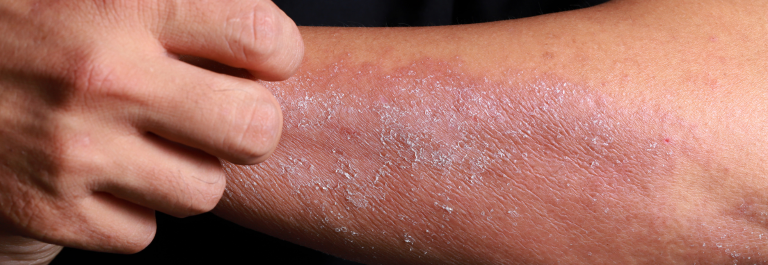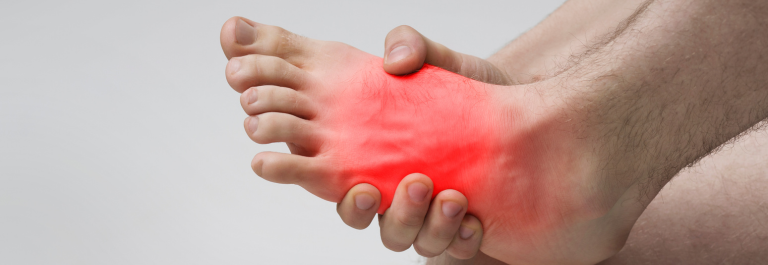Fibromyalgia syndrome (FMS) is a chronic disorder that causes widespread pain all across the body, as well as struggles with sleep, memory, and mental health.
Although less common, some people with the condition also experience persistent itchiness and skin sensitivities, which are thought to be caused by chemical imbalances in the brain and oversensitive nerves.
While fibromyalgia itching can feel overwhelming at times, throughout this post, we're here to explore everything you need to know about:
-
The fundamental causes and symptoms of fibromyalgia
-
Why fibromyalgia causes itching
-
Natural and effective treatment methods for fibromyalgia itching
Read on to learn more about the potential link between your fibromyalgia and your skin problems, discover tips to help you manage your pain, and find relief from intense itching today.
What Causes Fibromyalgia?
While there is no known cause of fibromyalgia, scientists believe there is likely a genetic connection to the condition, with some people inheriting genes from their parents.
Common symptoms of fibromyalgia include
-
A high sensitivity to pain
-
Muscle stiffness
-
Extreme tiredness
-
Difficulties with memory and concentration
-
Irritable bowel syndrome
While still unclear, many of these symptoms may be caused by issues with your body's central nervous system and pain signals.
For example, in the case of upper cervical misalignment, if your cervical bones slip out of alignment, this puts immense pressure on your brainstem, causing limited blood flow to your brain and improper cerebrospinal fluid drainage. Over time, this damages your body's neural pathways, leading to fibromyalgia symptoms.
Who Is Most At Risk?
While fibromyalgia can impact affect anyone, no matter their age or gender, most patients tend to be women between the ages of 25-55.
Studies have also found that people who have suffered a medical, physical, or personal trauma may also be more at risk of developing fibromyalgia symptoms, with emotional stress exasperating the condition.
Fibromyalgia And Itching - What's The Link?
It has been estimated that approximately 3% of fibromyalgia patients also experience itchy skin as part of their symptoms.
Other skin problems which may impact fibromyalgia patients include:
-
Skin pain and tenderness
-
Excessive sweating
-
Swelling
-
Unexplained tingling sensations or burning sensations
-
Skin rashes
Causes of Fibromyalgia Itching?
Dermatologic manifestations of fibromyalgia are thought to be caused by issues with your central nervous system as well as chemical imbalances within the brain. For example, studies have shown high serotonin levels may be linked to itchy skin.
Many of the different medications prescribed to treat fibromyalgia and its associated symptoms may also trigger an allergic reaction, causing you to break out in itchy skin rashes.
If you notice any adverse reactions to your medication, we suggest you consult your doctor for medical advice.
The Risks of Scratching
There's nothing more tempting than the urge to scratch a constant itch. However, if you have fibromyalgia, you might want to think twice!
Due to your highly sensitive pain receptors, scratching at your itch could make the whole area 'scream' with pain. This, in turn, will activate your nervous system even more, trapping you in a vicious 'itch-scratch cycle.'
Intense scratching can damage your skin barrier, causing dry skin and possibly scars.
Treating Fibromyalgia Itching
While there is no known cure for fibromyalgia (yet!), with the correct treatment, you can find relief from some of your symptoms and learn to manage pain.
If you or a loved one are coping with fibromyalgia itching, we have some tips to help you soothe your aggravated skin.
Keep Your Skin Hydrated
One of the leading causes of itchiness is dry skin. We recommend hydrating your skin daily by drinking plenty of water and using a deeply moisturizing skin balm as often as needed to prevent this.
For example, this Nourish + Hydrate Manuka Balm is made from nourishing manuka honey, olive oil, and beeswax to help restore your broken skin barrier, boost hydration, and reduce pain caused by cracked or swollen skin.
We also recommend avoiding hot showers, which can dry your skin even more. Instead, turn your water temperature down slightly, opting for a calming, lukewarm bath.
Wear Anti-Itch Clothing
In the case of fibromyalgia, itching can often feel widespread across the body. To help reduce itchiness, combat excessive sweating, and calm inflamed skin, we recommend hypoallergenic fabrics such as our Remedywear range.
For example, these Remedywear™ Long Sleeve Shirt for Adults and Remedywear™ Pants are form-fitting, moisture-wicking, and breathable - made from TENCEL and anti-inflammatory zinc to help soothe skin pain.
If you're struggling with scratching, wearing gloves can also be a great way to protect your skin. We'd suggest trying out the Remedywear™ Gloves for Adults, which are 100% hypoallergenic and latex-free.
Take Care of Your Mental Health
Stress makes itching worse, so one of the best things you can do to help relieve fibromyalgia itching is to take some time out to rest, relax, or have fun!
Some people have been known to find CBT and ACT therapies helpful in navigating the mental strains that can come with fibromyalgia symptoms.
Meditation may also be a helpful way to calm your mind and manage pain levels.
Combat Fibromyalgia Itching Today
Follow these tips to help you break the vicious cycle of itchy skin today, finding ways to ensure you can live your life to the fullest and feel healthy in your body and mind alongside your fibromyalgia symptoms.










